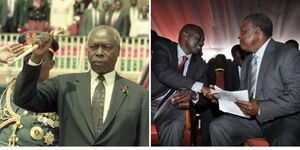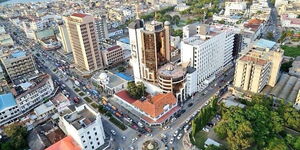A new survey by Trends and Insights for Africa (TIFA) has revealed that nearly one in five Kenyans blame President William Ruto for recent human rights breaches.
According to TIFA Research CEO Maggie Ireri, the figures showed a sharp difference based on political alignment, with 19 per cent of government opponents holding the Head of State directly responsible, compared to only 6 per cent of his supporters.
The survey revealed that the majority of Kenyans believe the police and other state security agencies are the main culprits in recent extrajudicial killings and enforced disappearances.
It found that 35 per cent of people pointed to these agencies as the leading perpetrators.
TIFA conducted the survey between August 23 and September 3, 2025, with 2,023 randomly selected Kenyans from all 47 counties.
According to Ireri, this belief is shared by both supporters and opponents of the Broad-Based Government (BBG), with 36 per cent of government supporters and 37 per cent of opponents holding this view.
"Overall, a clear plurality of Kenyans believe that the police and/or other state security agencies bear the main responsibility for extrajudicial killings and (35 per cent)."
"There is hardly any contrast between supporters and opponents of the BBG on this question (36 per cent vs. 37 per cent), and almost equal proportions indicating that they don’t know who is responsible," a statement from the poll reads.
The survey also revealed that other respondents attributed the crimes to political operatives, syndicate gangs, or unknown actors. However, most Kenyans admitted they were not sure who to hold accountable.
The poll also stated that most Kenyans do not believe the government is doing enough to stop extrajudicial killings and enforced disappearances.
According to the survey, 73 per cent of respondents said the government has failed to act strongly on the matter. Only 19 per cent felt the government is doing enough, while 8 per cent were not sure.
The results also showed differences based on political alignment. Among supporters of the Broad-Based Government (BBG), 37 per cent praised the government’s response. In contrast, only 12 per cent of those who oppose the BBG agreed, showing deep divisions in public opinion.












